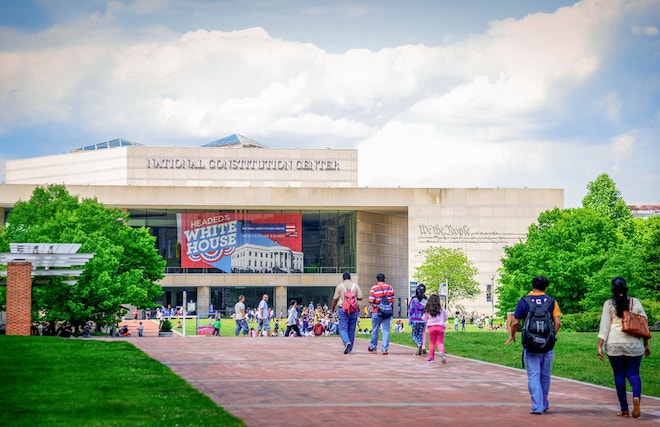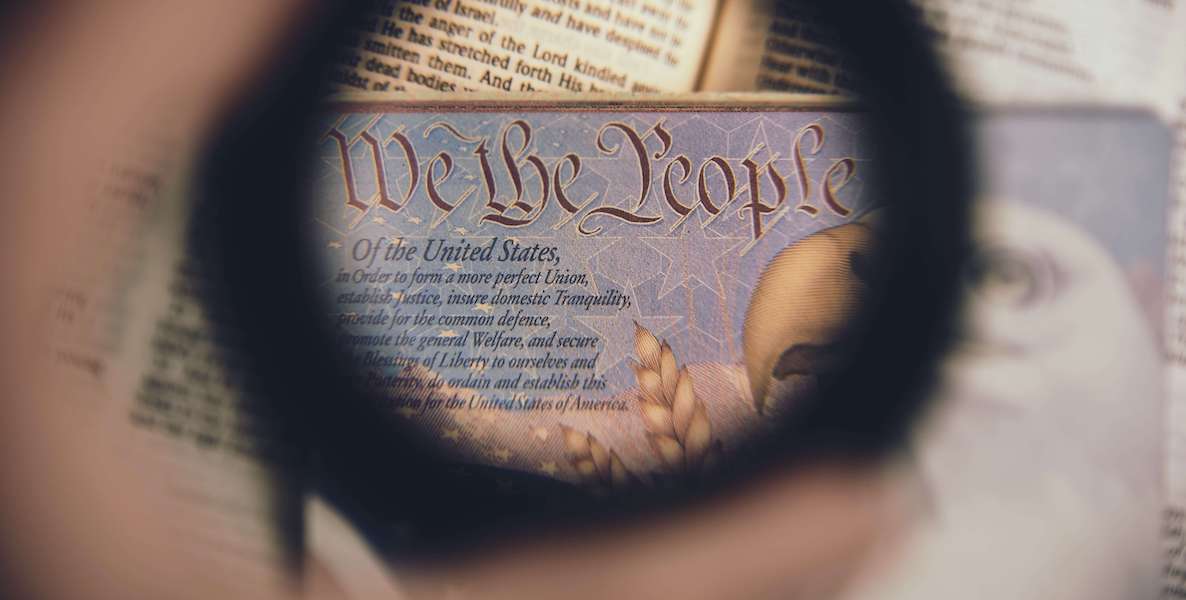On September 17, 1787, the U.S. Constitution was born in Philadelphia. As the delegates left the Constitutional Convention in Independence Hall, Benjamin Franklin was asked what kind of government had been created. He famously responded, “A Republic, if you can keep it.”
Our nation is distinctive in that its origin and identity are defined by a document. Later, other emerging nations followed the U.S. pattern in determining national identity through a constitution, but the U.S. was first. In 1787, we radically changed history and the process of nation building.
This week, we celebrate the 235th birthday of the document that defines the United States of America. But our Constitutional Republic is under the greatest threat since the Civil War. One reason for the danger is an absence of systematic study of the Constitution, pre-school through grad school. We have to change that if we want to secure our democracy.
Our Constitutional Republic is under the greatest threat since the Civil War. One reason for the danger is an absence of systematic study of the Constitution. We have to change that if we want to secure our democracy.
From the start, the U.S. Constitution has been a living document, immediately amended 10 times, forming the Bill of Rights. In all, the Constitution has been amended 27 times, most recently in 1992, with a regulation about compensation of senators and representatives originally proposed in 1789.
Beyond amendments, the ongoing vitality of the Constitution has been assured through the Supreme Court decisions that have interpreted it. When I urge Constitutional study, I am including the amendments and the Supreme Court decisions. They are a package.
Pennsylvania Act 35, passed in 2018, requires Commonwealth schools to develop “quality civics programs,” incorporating “Civic Knowledge, Skills, and Actions.” That acknowledges an important fact: Children must learn that the United States is a nation of rules and responsibilities.
In classrooms, they can design constitutions and bills of rights. They can discuss the history of Supreme Court decisions, noting how each reflects core values as interpreted at the time. They can design projects to strengthen democracy. They can visit Philadelphia’s National Constitution Center, which throughout the year offers brilliant online and in person programs.
On September 16 and 17, Constitution Day, admission to the Constitution Center (525 Arch Street) is free of charge. I hope that many Philadelphia school groups avail themselves of the live and virtual events planned for that day.

Colleges and universities must not confine Constitutional study to political science. Throughout the decades in numerous discussions of what constitutes a core curriculum, I have always argued that the U.S. Constitution, including amendments and Supreme Court decisions, is definitively at the root of understanding American culture, society, and politics.
Yet, few higher education institutions incorporate the Constitution into the general education curriculum. When some try to do so, it’s sometimes considered controversial. In the 1980s, the University of Texas at Austin made the U.S. Constitution and Supreme Court decisions the center of its required first-year English composition program. This freshman writing curriculum did not last long. The director was under so much pressure that she left for a university job in California.
It’s interesting to note that Pennsylvania is one of only four states that chooses to call itself a Commonwealth, a British term that means commitment to the “common good” or “common wealth” of its citizens. Certainly, in Pennsylvania and emphatically in Philadelphia, we should celebrate Constitution Day with a personal promise to encourage Constitutional study and civic learning from infancy to longevity. It is only through education that we can respond to Benjamin Franklin’s challenge and keep our republic.
Elaine Maimon, Ph.D., is the author of Leading Academic Change: Vision, Strategy, Transformation. Her co-authored book, Writing In The Arts and Sciences, has been designated as a landmark text. She is a Distinguished Fellow of the Association for Writing Across the Curriculum. Follow @epmaimon on Twitter.
![]() RELATED COVERAGE ON THE EDUCATION AND THE CONSTITUTION
RELATED COVERAGE ON THE EDUCATION AND THE CONSTITUTION




